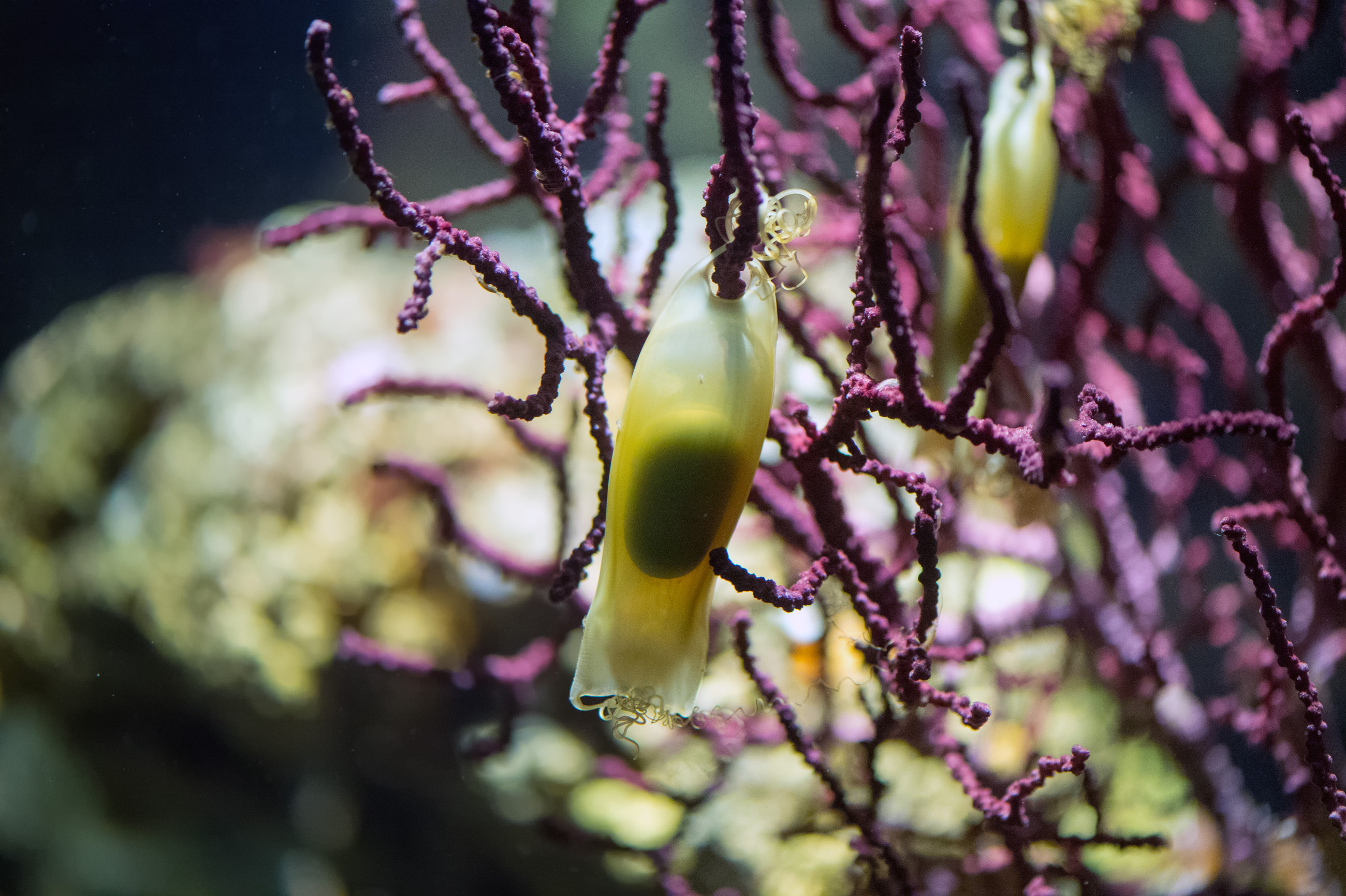Baby sharks are born scrawny and sick because of climate change
Future oceans could be too warm for baby sharks.

Get the world’s most fascinating discoveries delivered straight to your inbox.
You are now subscribed
Your newsletter sign-up was successful
Want to add more newsletters?

Delivered Daily
Daily Newsletter
Sign up for the latest discoveries, groundbreaking research and fascinating breakthroughs that impact you and the wider world direct to your inbox.

Once a week
Life's Little Mysteries
Feed your curiosity with an exclusive mystery every week, solved with science and delivered direct to your inbox before it's seen anywhere else.

Once a week
How It Works
Sign up to our free science & technology newsletter for your weekly fix of fascinating articles, quick quizzes, amazing images, and more

Delivered daily
Space.com Newsletter
Breaking space news, the latest updates on rocket launches, skywatching events and more!

Once a month
Watch This Space
Sign up to our monthly entertainment newsletter to keep up with all our coverage of the latest sci-fi and space movies, tv shows, games and books.

Once a week
Night Sky This Week
Discover this week's must-see night sky events, moon phases, and stunning astrophotos. Sign up for our skywatching newsletter and explore the universe with us!
Join the club
Get full access to premium articles, exclusive features and a growing list of member rewards.
Baby sharks are being born small, exhausted and undernourished as a result of rising ocean temperatures caused by climate change, according to a new study.
Researchers looked at the effects of warming waters on juvenile epaulette sharks (Hemiscyllium ocellatum) — a small, egg-laying species of shark found in the Great Barrier Reef, that spends most of its time on the seafloor. Studying their egg sacs in a laboratory at the New England Aquarium in Boston, the researchers discovered that warmer waters led to premature births of the baby sharks inside.
"The hotter the conditions, the faster everything happened, which could be a problem for the sharks,” study lead author Carolyn Wheeler, a doctoral candidate at the University of Massachusetts and the ARC Centre of Excellence for Coral Reef Studies at James Cook University (JCU) in Australia, said in a statement. "The embryos grew faster and used their yolk sac quicker, which is their only source of food as they develop in the egg case. This led to them hatching earlier than usual."
Related: 7 unanswered questions about sharks

Sharks, rays and skates — collectively known as Chondrichthyes — reproduce in two main ways. Larger sharks, such as great white sharks and whale sharks, give birth to live young, whereas smaller sharks and rays lay egg sacs, which are then left to develop, and eventually hatch, without any help from the parents.
For egg-laying sharks, having smaller and malnourished offspring is problematic, because the babies are at an immediate disadvantage from birth. However, the findings are a cause for concern in all shark species, the researchers said.
Get the world’s most fascinating discoveries delivered straight to your inbox.
"The epaulette shark is known for its resilience to change," study co-author Jodie Rummer, a marine biologist at JCU, said in the statement. "So, if this species can't cope with warming waters, then how will other, less tolerant species fare?"
The researchers tested the effects of warming temperatures on epaulette shark eggs in water up to 31 degrees Celsius (88 degrees Fahrenheit), which is the expected summer water temperature for the Great Barrier Reef by the end of the century. If rising temperatures continue unabated, there may come a point when these sharks can no longer properly develop, warn the researchers.
That could devastate the whole Great Barrier Reef ecosystem.
"Sharks are important predators that keep ocean ecosystems healthy," Wheeler said in the statement. "Without predators, whole ecosystems can collapse, which is why we need to keep studying and protecting these creatures."
The study was published Jan. 12 in the journal Scientific Reports.
Originally published on Live Science.

Harry is a U.K.-based senior staff writer at Live Science. He studied marine biology at the University of Exeter before training to become a journalist. He covers a wide range of topics including space exploration, planetary science, space weather, climate change, animal behavior and paleontology. His recent work on the solar maximum won "best space submission" at the 2024 Aerospace Media Awards and was shortlisted in the "top scoop" category at the NCTJ Awards for Excellence in 2023. He also writes Live Science's weekly Earth from space series.
 Live Science Plus
Live Science Plus










